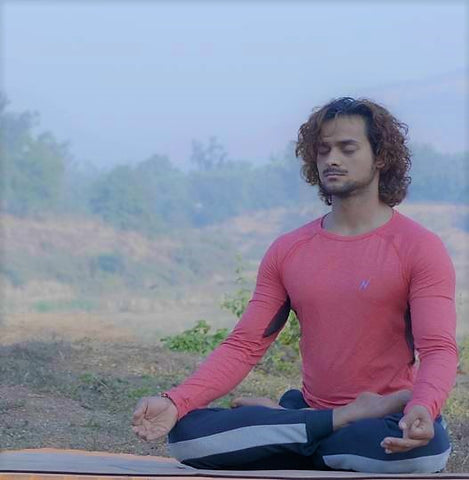Yoga and Religion
To understand the difference between Religion and Yoga, it’s important to know difference between Religion and Dharma.
Religion may have its origin from latin word ‘religio’ meaning ‘good faith’, ritual etc. or from the word ‘religare’ which means ‘to tie fast’. It is defined as system of faith based on the belief of existence of particular, exclusive, external God managed by a centralised institution.
Religion is defined by a set of laws mentioned in single book given by God which distinct from oneself. It holds that human’s body is tainted in its very conception. It has inherited a ‘fall’ from which his/her consciousness can be saved provided he/she seeks salvation through its particular God. And salvation is a matter of faith and one does not have to learn any spiritual technique of it.
Dharma is a much wider concept than religion. Dharma comes from Sanskrit root ‘Dhri’ which means "that which upholds" or "that without which nothing can stand".
It encompasses various duties that enable successful living. These are classified as 'Purushartha' or Actions through duties are fulfilled –
Dharma – Moral duties, Artha – Financial duties, Kama – Sensual fulfillment, Moksha – Spiritual liberation.

Sanatana Dharma or ‘Eternal’ Dharma groups together sixteen Darshanas or systems of Philosophies. Each one, respected by the other as being an attempt to understand the nature of existence.
Few of these philosophies are atheist in nature and have no place for God – Charvarka, Buddhism, Jainism etc. In others, idea of God is debatable whereas in few, Purusha, Brahman or Ishvara is Consciousness and unit of this consciousness is Jiva – you and me, the individual being.
All spiritual practices aim at strengthening the body, stabilising the mind and refining the perception of the Jiva to experience the Ishvara within and without.
The body and Mind are not two, but one unit through which consciousness permeates. This body – Mind complex is the tool wherein the divine unit of consciousness resides. It is purified through the practices of Yoga so that the awareness is prepared to recognise its own true divine nature.
Ethical Life and Spiritual Awakening
Religions maintain that there is no need to awaken the Kundalini – or the spiritual energy. That through suitable lifestyle and belief in philosophical ideas, ethical life is to be lived. But for a yogi, the ultimate experience of a greater reality is of supreme importance than adhering to beliefs.
Ethical life cannot be a substitute for spiritual awakening as it is only the basis for consciousness to evolve. For illumination to happen, Body and Mind must be truly refined. This highest experience calls for the highest level of effort and there are many paths towards it.
The direct experience of illumination is possible only to human beings and to not be oriented towards experiencing it means stagnation. A life based on suppression of this primal natural desire that can lead to mental disharmony transpiring to physical disorder.
It is the experience of Yoga, Self-realisation, Mokhsa, Nirvana, liberation which is the ultimate goal of Dharma and is possible for each one, in this body and in this life.
References:
Hatha Yoga Pradipika – commentary by Muktibodhananda -
Bihar School of Yoga














